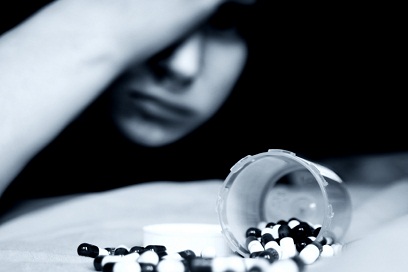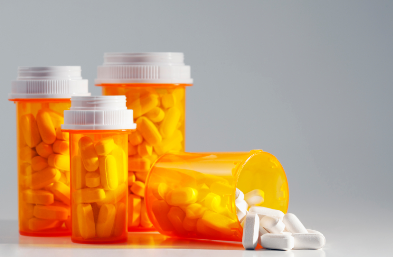
Midterms. Finals. College applications. It’s no secret that today’s teenagers are overwhelmed with pressure to succeed, both academically and socially. Expectations are high, and teens are turning to stimulant medications, like Adderall and Ritalin, because they think it will alleviate some of that pressure and help them keep up.
But what many teens and their parents don’t know is that when used in any other way than that prescribed by a doctor, stimulant medicines can be harmful to the body and mind.
And parents are the key in helping teens better manage their stress, without the assistance of stimulant medications that haven’t been prescribed to their child.

Too Many Teens – And Their Parents! – Think Stimulant Abuse Okay
We’ve seen the numbers and know the facts: too many teens are misusing and abusing prescription medicine.
In fact, teen Rx drug abuse is up by 33 percent since 2008, and this rise is being driven specifically by stimulants.
Also contributing to this dangerous behavior is the fact that teens and parents think it’s okay to use these drugs to help them perform.
REALITY CHECK:
One in four teens (26 percent) believe that prescription drugs can be used as a study aid.
One-third of parents say they believe ADHD medication can improve a child’s academic or testing performance, even if their teen doesn’t have ADHD.
Overlooking the Dangers: Teen Stimulant Abuse Can Lead to Serious Health Problems
This shared misconception and lack of knowledge is concerning, as stimulant medicines can cause sudden death in patients who have heart problems or heart defects, as well as causing increased blood pressure and heart rate – which can lead to other health issues down the line.
These medications can also lead to negative behavior or thought problems, aggressiveness and hostility, psychotic symptoms and in some cases, eyesight changes, slowing of growth and even seizures. Other common side effects are headache, nervousness, stomachaches, trouble sleeping and mood swings.
So despite what many teens and parents think, ADHD medicines are not harmless performance-enhancers. Make sure you talk to your teen about those risks.
Our Role as Parents: Helping Kids to Manage Stress
When was the last time your teen approached you and asked you to help them manage their stress? While kids typically won’t directly ask us for help, the stimulant abuse statistics show that they do need it – and they will seek it in one form or another. Their world is full of pressures, and it is up to us as parents to alleviate some of it, making sure they turn to us for help, and not to drugs.
How? I have four easy steps for you, starting with education.
1) LEARN!
The first step is to learn as much as we can about medicine abuse and stimulant medication, so we understand the risks and the ways that these drugs can harm our children’s bodies and minds.
2) LOCK!
Like it or not, teens who abuse any type of Rx drug are getting these substances from our own homes and medicine cabinets. In fact, 43 percent of teens say that Rx drugs are easier to get than illegal drugs, and more than half (56 percent) of teens say it’s easy to get Rx drugs – including stimulants – from their parents’ medicine cabinet. Don’t give in to this dangerous temptation: lock up your medicines and prevent the problem from starting.
3) TALK!
You may have had drug-related talks with your kids, but talking specifically about the dangers of stimulant abuse is important.
While 81 percent of teens say they discussed the risks of marijuana with their parents and 80 percent discussed alcohol during the last conversation they had with their parents on the topic, just 14 percent say they talked about Rx drug abuse.
As parents, we need to not only have this talk, but to set a clear, zero-tolerance, no-use policy. Kids who believe their parents will disapprove of Rx drug abuse are less likely to try these drugs in the first place.
It is also important to use the information we learned in step one to educate our kids about the side effects and dangers of abuse. Ask your teen if the gamble is worth it: abusing stimulant medicine could do the opposite of everything he or she worked so hard for in the first place.
4) TEACH!

Teaching your kids coping skills might be the most important step, but it’s a step most parents aren’t taking. Giving your kids choices and options of ways to handle stress instead of taking stimulants is crucial. What are these coping skills?
~ For one, make sure your teenager is putting in an adequate amount of time when it comes to studying and preparing for tests and other academic milestones.
~ Remind your teens frequently that you can help by giving practice tests or reviewing material, and then actually make yourself available to do so if asked
~ If your teen is overwhelmed, check with the teacher prior to the end of school. Could a summer class is time management skills, an online course in organization, a book about study skills or a tutor help your teen?
~ Does your teen know a healthy way to manage stress for instance, exercise, yoga, journaling, listening to music, using deep breathing strategies? There are lots of stress management strategies-the trick is to find ones that work for your teen.
~ Sort through college applications with your teen, be available to help him or her study – it’s this supportive presence in our kids’ lives that can help alleviate pressure and keep them from turning to drugs of any kind.
Michele
Dr. Michele Borba
Follow me on twitter @MicheleBorba

